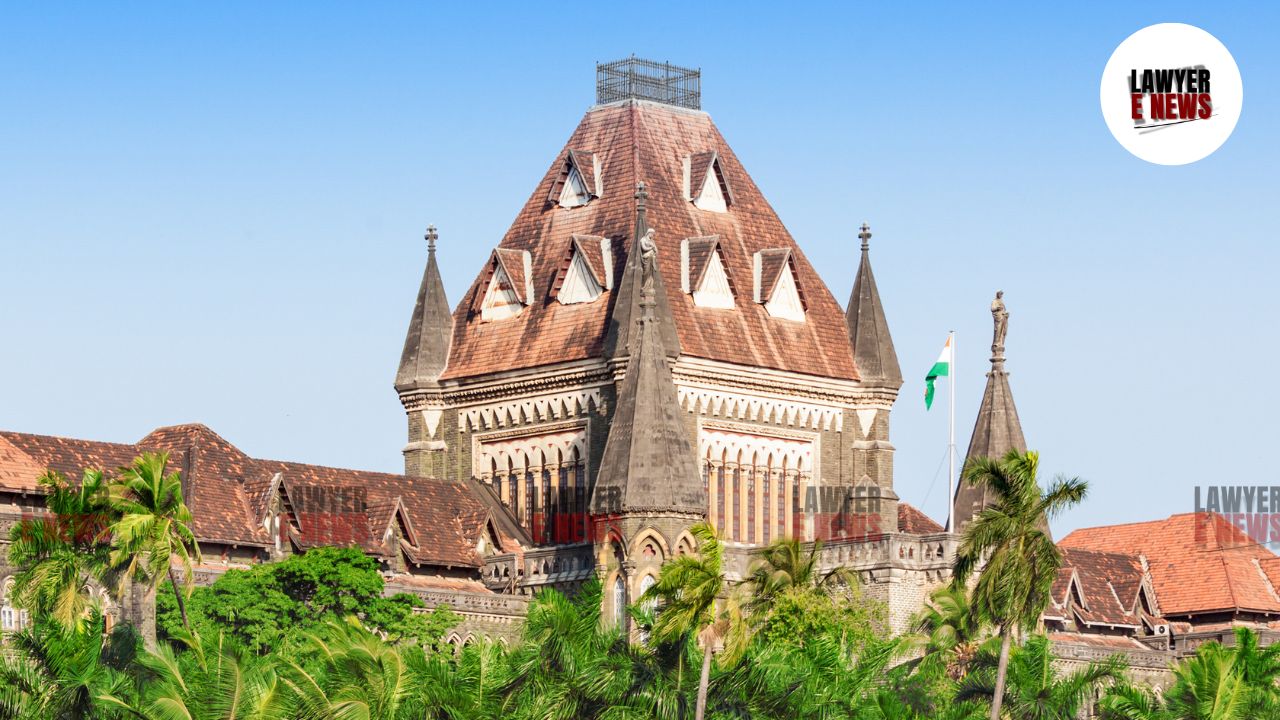-
by Admin
15 February 2026 2:36 AM



"Conspiracy Can Be Established Through Circumstantial Evidence, Even in the Absence of Direct Proof" - Bombay High Court , in the case of Sunil Dharma Mane vs. National Investigation Agency & Anr., upheld the denial of bail to Sunil Dharma Mane, a Senior Inspector of Police, accused of involvement in the murder of Mansukh Hiran. The High Court observed that there existed a strong prima facie case against the appellant based on technical evidence, witness statements, and circumstantial proof of his complicity in a larger conspiracy involving explosive materials and murder. The judgment, rendered by a bench of Justices Revati Mohite Dere and Prithviraj K. Chavan, reaffirms the application of the stringent provisions under the Unlawful Activities (Prevention) Act, 1967 (UAPA), and the National Investigation Agency Act, 2008.
The case originates from the recovery of a Scorpio vehicle laden with explosives near the residence of an industrialist on February 25, 2021, followed by the murder of Mansukh Hiran, the vehicle’s reported owner, on March 4, 2021. Initial investigations by the Maharashtra Anti-Terrorism Squad (ATS) revealed a complex conspiracy involving high-ranking police officers, including Sachin Waze (A-1) and Pradeep Sharma (A-10), to plant the explosives and later eliminate Hiran, deemed a weak link in the conspiracy.
Subsequently, the investigation was handed over to the National Investigation Agency (NIA). Inspector Mane, arrested on April 23, 2021, was accused of luring Hiran to his murder site under the guise of police protection. The Special Court had rejected Mane’s bail plea, prompting the present appeal.
The appeal revolved around the following key legal questions:
Whether the prima facie evidence established Mane’s complicity in the alleged conspiracy and murder.
The applicability of UAPA provisions to the alleged acts.
Whether Mane’s bail could be granted considering the severity of charges and the potential risk of witness tampering.
The Court analyzed circumstantial evidence and technical records linking Mane to the conspiracy:
Call Detail Records (CDRs) and CCTV Footage: These revealed Mane’s movements and interactions with other co-accused, including his use of a benami SIM card to contact Hiran.
Witness Testimonies: Statements from multiple witnesses, including protected witnesses, detailed Mane’s role in luring Hiran under the pretext of safety and later handing him over to hired killers.
Role in Covering Tracks: Mane was accused of destroying evidence, including tampering with mobile phones and vehicle registrations used in the crime.
The Court rejected the defense’s argument that there was no direct evidence of Mane’s involvement, holding that "conspiracy can be inferred from a sequence of events and circumstantial evidence, even in the absence of direct proof."
The Court upheld the applicability of UAPA provisions, observing that the acts were intended to strike terror. Referring to National Investigation Agency vs. Zahoor Watali, the Court emphasized that at the bail stage under UAPA, the threshold for establishing a prima facie case is lower than that required for discharge. The material presented was sufficient to satisfy this standard.
Given Mane’s position as a senior police officer, the Court found a significant risk of witness tampering and obstruction of justice if he were released. The Court also noted that Mane had previously sought pardon before the trial court, admitting his involvement, but later withdrew the application.
"The appellant’s role in luring the deceased, facilitating the crime, and tampering with evidence is supported by a chain of circumstantial and technical evidence, which, prima facie, establishes his complicity in the larger conspiracy."
"The severity of the charges, including those under the UAPA, and the likelihood of the appellant influencing key witnesses justify the denial of bail."
The Court applied the principles from Gurwinder Singh vs. State of Punjab and Tarun Kumar vs. Assistant Director, Directorate of Enforcement, emphasizing that the severity of offenses and ongoing investigation warranted continued detention. It distinguished this case from KA Najeeb, noting that the trial was progressing, and 22 witnesses, including protected witnesses, had already been examined.
The High Court dismissed Mane’s appeal, underscoring the gravity of the charges and the adequacy of evidence against him. It reiterated that its observations were limited to the bail stage and would not influence the trial's outcome.
Date of Decision: November 18, 2024
